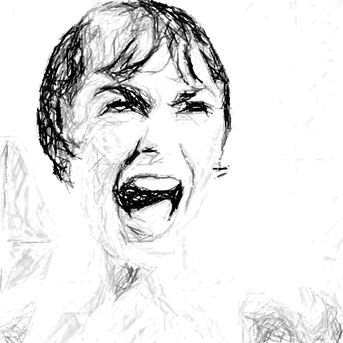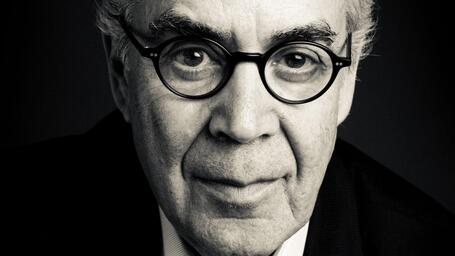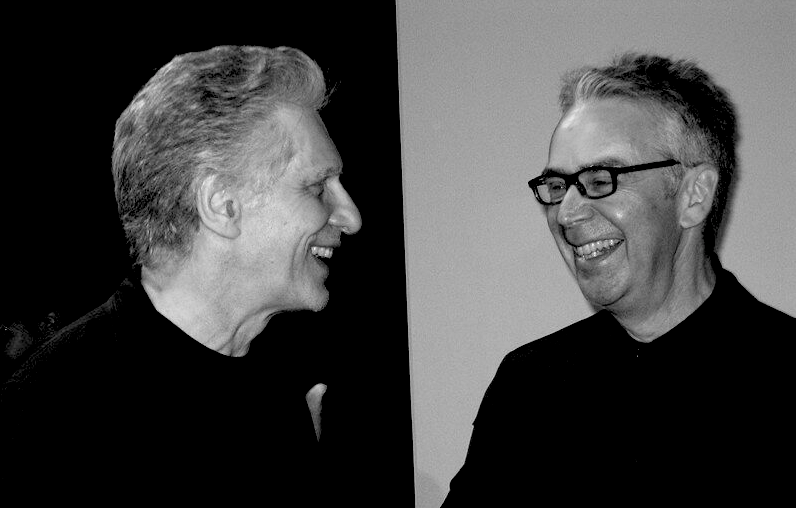Howard SHORE
|
Le compositeur canadien Howard Shore est salué comme monument de la musique de film, auréolé de récompenses prestigieuses dont 3 Oscars pour la trilogie du Seigneur des Anneaux. Une aura qui a parfois tendance à figer, dans le respect d’une filmographie hors du commun, un artiste en constante évolution et tourné vers l’avenir.
Tout juste diplômé du Berklee College of Music de Boston à une époque où le jazz est en pleine mutation, il part en tournée avec «Lighthouse», groupe de rock dont il est le saxophoniste et qui ouvre les concerts de Jimi Hendrix au Festival de l'Ile de Wight et du Jefferson Airplane. Les longues heures de route, les escales dans les motels, sont autant d’occasions de s’immerger dans les musiques de Webern, Schoenberg et autres compositeurs contemporains. En 1975, Howard Shore participe à la création du légendaire « Saturday Night Live » dont il devient le premier directeur musical. Là encore, il s’inscrit dans une période propice à l’effervescence créative d’une télévision en pleine (r)évolution. C’est à cette époque que débute sa collaboration avec le réalisateur canadien David Cronenberg, pour lequel il signera les partitions de 15 films. Autant de musiques qui restent, aujourd’hui encore, une référence absolue pour nombre de jeunes compositeurs. À la fin des années 70, le 7ème Art est le champs de tous les possibles. Il va lui permettre de développer un style unique et inimitable, en parfaite symbiose avec le cinéma innovant de son complice et ami David Cronenberg. Chaque projet est l’occasion d’une expérimentation, et si le budget est parfois limité, la liberté de création ne se refuse rien, à l’image de son incroyable partition du Festin Nu magnifiée par le saxophone d'Ornette Coleman. Howard Shore attire rapidement l’attention de réalisateurs indépendants et exigeants, dont les productions lui permettent d’explorer de nouvelles façons de composer, notamment pour l’orchestre, sans pour autant s’inspirer des stéréotypes américains. Il travaillera ainsi en étroite et souvent longue relation avec Martin Scorsese, Peter Jackson, David Fincher, Jonathan Demme et Tim Burton. Tout au long de ses scores et de ses musiques de concert, Howard Shore s’inscrit dans son époque, joue avec les références, les univers, les innovations techniques, cherche un air du temps destiné à durer. C’est dans cette optique, quelques années après sa deuxième collaboration avec Arnaud Desplechin, qu’il se tourne vers l’Europe à la recherche de nouveaux projets, de nouvelles narrations, à même d’encourager une création curieuse et novatrice. |
ENGLISH VERSION
Canadian composer Howard Shore is hailed as a monument of film music, with prestigious awards including 3 Oscars for The Lord of the Rings trilogy. Paradoxically, such an extraordinary filmography may sometimes confine an artist in perpetual evolution who's constantly looking toward new musical grounds.
Graduated from Berklee College of Music in Boston at a time when jazz was evolving, he went on tour as a saxophonist with "Lighthouse", a rock band which opened for Jimi Hendrix at Isle of Wight Festival and toured with Jefferson Airplane. The long hours spent on road, the stops in motels, are all opportunities to immerse himself, under the initiatory impulse of a member of the group, in the music of Webern, Schoenberg and other contemporary composers.
In 1975, Howard Shore was one of the original creators of the legendary "Saturday Night Live" and became its first musical director. Here again, it is part of a period conducive to the creative effervescence of a television in full (r)evolution. It was at this time that he began collaborating with Canadian director David Cronenberg. He would go on to compose 15 of his film scores. So much music that remains, even today, an absolute reference for many young composers...
At the end of the 1970s, the 7th Art was the field of all possibilities. It allowed him to develop a unique and inimitable style in perfect symbiosis with the innovative cinema of his accomplice and friend David Cronenberg. Each project is an opportunity for experimentation, and if the budget is sometimes limited, the freedom of creation is total and does not refuse anything, like his incredible score of Naked Lunch magnified by Ornette Coleman's saxophone.
Howard Shore quickly attracted attention of independent and demanding directors, their productions allowed him to explore new ways to compose, especially for the orchestra, without taking inspiration from American stereotypes. He worked in close and often long-lasting relationships with, among others, Martin Scorsese, Peter Jackson, David Fincher, Jonathan Demme and Tim Burton.
Throughout his compositions for film and concert, Howard Shore is in tune with his time, playing with references, universes, technical innovations, looking for the times that will last. It is with this in mind, a few years after his second collaboration with Arnaud Desplechin, that he is looking to Europe in search of new projects, new narratives, able to encourage a curious and innovative creation.
Canadian composer Howard Shore is hailed as a monument of film music, with prestigious awards including 3 Oscars for The Lord of the Rings trilogy. Paradoxically, such an extraordinary filmography may sometimes confine an artist in perpetual evolution who's constantly looking toward new musical grounds.
Graduated from Berklee College of Music in Boston at a time when jazz was evolving, he went on tour as a saxophonist with "Lighthouse", a rock band which opened for Jimi Hendrix at Isle of Wight Festival and toured with Jefferson Airplane. The long hours spent on road, the stops in motels, are all opportunities to immerse himself, under the initiatory impulse of a member of the group, in the music of Webern, Schoenberg and other contemporary composers.
In 1975, Howard Shore was one of the original creators of the legendary "Saturday Night Live" and became its first musical director. Here again, it is part of a period conducive to the creative effervescence of a television in full (r)evolution. It was at this time that he began collaborating with Canadian director David Cronenberg. He would go on to compose 15 of his film scores. So much music that remains, even today, an absolute reference for many young composers...
At the end of the 1970s, the 7th Art was the field of all possibilities. It allowed him to develop a unique and inimitable style in perfect symbiosis with the innovative cinema of his accomplice and friend David Cronenberg. Each project is an opportunity for experimentation, and if the budget is sometimes limited, the freedom of creation is total and does not refuse anything, like his incredible score of Naked Lunch magnified by Ornette Coleman's saxophone.
Howard Shore quickly attracted attention of independent and demanding directors, their productions allowed him to explore new ways to compose, especially for the orchestra, without taking inspiration from American stereotypes. He worked in close and often long-lasting relationships with, among others, Martin Scorsese, Peter Jackson, David Fincher, Jonathan Demme and Tim Burton.
Throughout his compositions for film and concert, Howard Shore is in tune with his time, playing with references, universes, technical innovations, looking for the times that will last. It is with this in mind, a few years after his second collaboration with Arnaud Desplechin, that he is looking to Europe in search of new projects, new narratives, able to encourage a curious and innovative creation.


